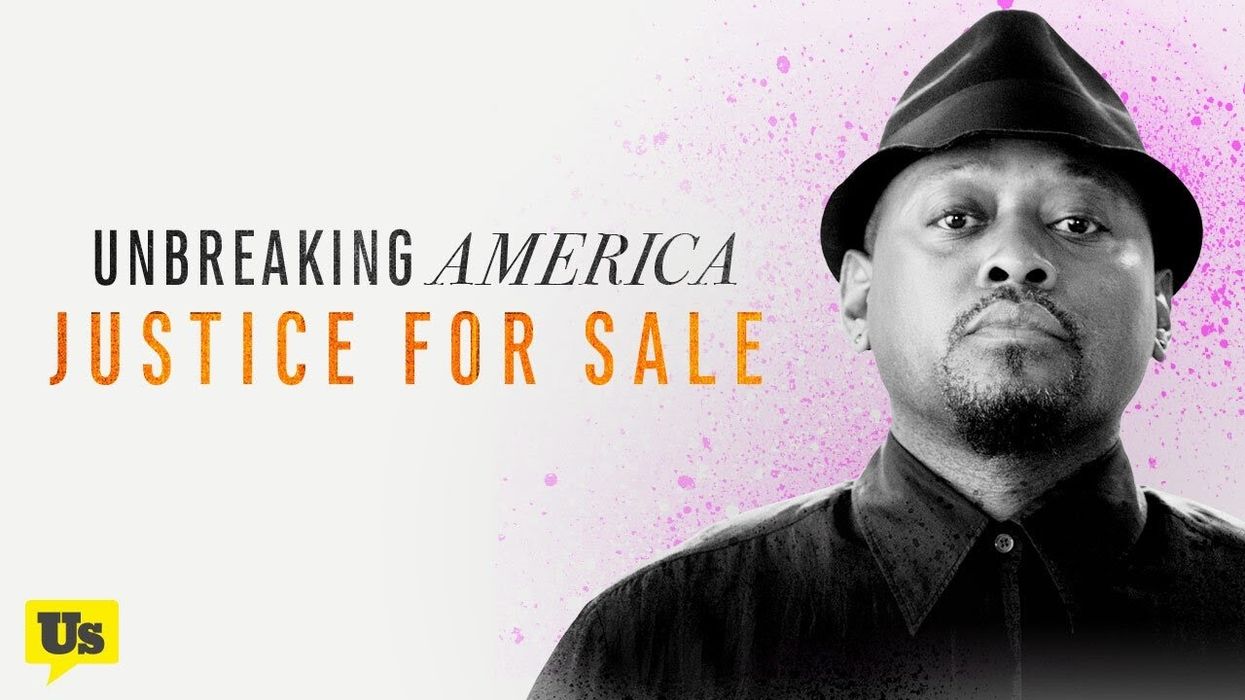Griffiths is the editor of Independent Voter News.
Current events have turned everyone's attention to the nation's criminal justice system. Most Americans agree that the system is broken. Yet, in a new "Unbreaking America" film, RepresentUs makes the case that the criminal justice system remains broken because the broken U.S. political system keeps it that way.
"Even though crime rates across the U.S. are going down, America locks up seven times more people now than we did in 1970," actor and RepresentUs Cultural Council member Omar Epps says in the opening. "We, as Americans, put more people behind bars than any other nation in the world — both as a percentage of population and in total numbers."
According to the Institute for Criminal Policy Research's
World Prison Brief, the incarceration rate in the US is .67 percent, followed by El Salvador, Turkmenistan, Thailand, Palau, Rwanda, and Cuba.
The United States also has a prison population of 2.3 million, which is substantially higher than China's 1.6 million, and China has a total population of approximately 1.4 billion people. Epps says if nothing changes oOne in 17 white men will be incarcerated in their lifetime along with one in six Latinos and one in four Black men.
"And we're putting women in jail even faster than we're locking up men," Epps points out.
It's important to remember that as incarceration increases, crime rates are dropping. In fact, according to the Bureau of Justice Statistics, violent crime dropped a staggering 71 percent from 1993 to 2018.
Epps says that while the nation is divided on many things, nearly all Americans agree that the system needs to be fixed. Yet, there is one thing standing in the way of substantive reform: the U.S. political system.
As pointed out in a previous "Unbreaking America"
film featuring actor Michael Douglas, no matter how much support something has there is a near zero percent chance that action will be taken by policymakers. Why? Because the incentive structure is skewed.
Members of Congress are not incentivized to address the will of the people, Douglas argues. In fact, according to Katherine Gehl and Michael Porter, there is virtually zero correlation between acting on the will of voters and politicians getting re-elected. This is because the political system is controlled by private, gain-seeking organizations and entities that act out of their own self-interest.
The latest film, which also features prominent voting rights activist Desmond Meade, points to a number of incentives that are outweighing the interests of voters:
- The private, for-profit prison industry, which incarcerates 10 percent of U.S. prisoners and nearly three-quarters of immigrant detainees, spent $64 million in the last 10 years lobbying Congress for stricter laws, longer sentences and stronger enforcement policies, while they make $6 billion in revenue annually.
- Many judges are elected by voters, and have been shown to give harsher sentences around election time. In areas that use partisan primaries to elect judges, the incentive structure is even worse because to keep their seat they have to appeal to a small partisan base.
- As much as 60 percent of political donations for key judicial positions come from "lawyers, lobbyists, and business interests."
- Corporations use inmates as practically free labor instead of hiring paid workers. After the BP oil spill, for instance, inmates were used to clean up the mess. They paid inmates pennies on the dollar and qualified for a $2,400 tax kickback for every inmate used.
(RepresentUs sources all of this information in the video.)
"It's going to be hard to fix the problems," Meade explains, "unless we first fix America's corrupt political system."
Meade, who rose to prominence in the democracy reform movement by leading efforts to restore felons' voting rights in Florida, says this means "banning lobbyist gifts to politicians, closing the revolving door between Congress and industry," and enfranchising more voters "so politicians actually represent us." He says all of these ideas are part of one proposed that RepresentUs is encouraging, primarily at the state and local levels.
The
American Anti-Corruption Act not only has broad support across the political spectrum, but it has policy proposals to stop political bribery, end secret money, change the elections systems (its proposals include open primaries, vote-at-home options, term limits. and ranked-choice voting), and strengthen enforcement of anti-corruption laws already on the books.
"Let's be honest, America is facing a crisis and we need to act with an urgency commensurate to the severity of the problem," says Epps. "That's on you, it's on me, it's on all of us."
Epps breaks down the choice before voters as he closes out the video:
"Here's the bottom line: Nearly every issue that matters to you, or that matters to the next generation of Americans, is blocked by our corrupt political system, and if you do nothing or if I do nothing, nothing is going to change. But if each of us does something, we can win. Together."
Visit IVN.us for more coverage from Independent Voter News.




















Trump & Hegseth gave Mark Kelly a huge 2028 gift